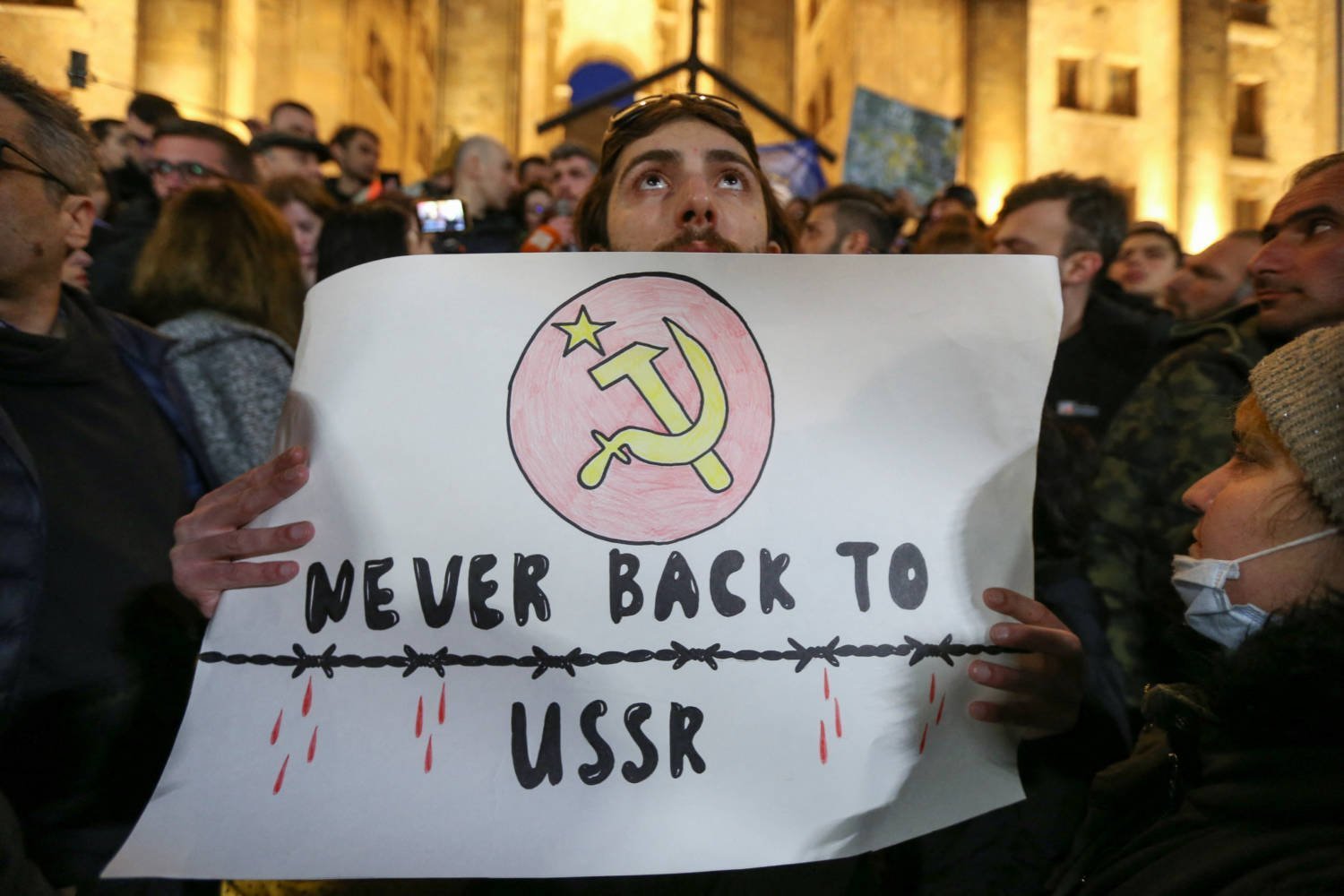Thousands of people staged a second straight day of protests in the Georgian capital Tbilisi on Wednesday, rallying against a “foreign agents” law which critics say signals an authoritarian shift and harms Georgia’s chances of closer ties with Europe.
Parliament on Tuesday passed a first reading of the legislation, which requires any organisations receiving more than 20% of their funding from overseas to register as “foreign agents” or face substantial fines.
The ruling Georgian Dream party say it is modelled on U.S. legislation dating from the 1930s. Critics, including President Salome Zourabichvili, say it is reminiscent of a Russian law that the Kremlin has used extensively to crack down on dissent.
In violent clashes on Tuesday evening, protesters threw petrol bombs and stones at police, who used tear gas and water cannon to disperse the crowds. The interior ministry said 66 people had been detained.
Protests kicked off again on Wednesday afternoon with a march down the central Rustaveli Avenue to mark International Women’s Day, which is a public holiday in Georgia.
Thousands gathered in front of the country’s parliament as evening set in, carrying Georgian and EU flags and shouting “No to the Russian law”.
Reuters reporters heard the Georgian, Ukrainian and European Union anthems being sung or blasted through speakers as crowds poured onto the street in front of parliament, blocking traffic.
Footage of smaller protests in the Black Sea resort city of Batumi, Georgia’s second largest, were also shared online.
RIFT
The issue has deepened a rift between Georgian Dream, which leads the government and has a majority in parliament, and President Zourabichvili, a pro-European who has moved away from the party since being elected with its support in 2018.
She has backed the protesters, saying on Tuesday that lawmakers who voted for the draft had violated the constitution. She also pledged to veto the bill if it reached her desk, though parliament can override her veto to force laws through.
Critics say Georgian Dream is too close to Russia and has taken the country in a more repressive direction in recent years. Georgian society is strongly anti-Moscow following years of conflict over the status of two Russian-backed breakaway regions, which flared into a short war in 2008.
The U.S. Helsinki Commission, a government agency that monitors rights across Europe, has called the draft law an “assault on the country’s weakening democracy.”
“The ruling party’s roughshod insistence on its progress is both alarming and a reflection of Moscow’s growing sway in Tbilisi,” it said in a tweet.
Georgian Dream Chairman Irakli Kobakhidze defended the bill again on Wednesday, saying it would help root out those working against the interests of the country and the powerful Georgian Orthodox Church. He criticised Georgia’s “radical opposition” for stirring up protesters to commit “unprecedented violence” during Tuesday’s rallies, according to Georgian news agencies.
Several EU officials have also expressed concerns over the law.
“Adoption of this ‘foreign influence’ law is not compatible with the EU path, which majority in Georgia wants,” European Council President Charles Michel said in a tweet on Wednesday.
Last year Brussels rebuffed Tbilisi’s attempts to become a candidate country for EU membership, saying it needed to speed up reforms in areas such as the rule of law, media freedom and the independence of the judiciary.
(Reuters)






